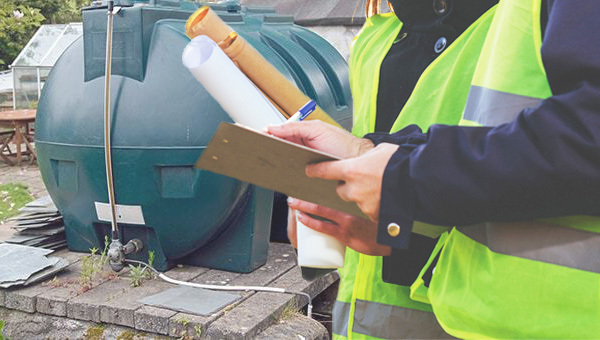For millions of homeowners around the world, heating oil is a reliable and efficient energy source for keeping their homes warm during the cold winter months. Numerous individuals purchase their oil from local heating oil supplier Shropshire. However, a significant number of them neglect to consistently maintain their storage tanks. To store this valuable fuel, heating oil storage tanks are used. These tanks come in various sizes and materials, but they all share the same purpose: to safely store and provide a steady supply of heating oil to the home’s heating system. In this blog post, we will delve into the importance of understanding heating oil storage tanks and the maintenance requirements to ensure their safety and efficiency.
Types of Heating Oil Storage Tanks
Above-Ground Storage Tanks (ASTs): Above-ground tanks are the most common type used in residential settings. They are placed outside the home, often in the basement or garage, and can be made of steel, aluminium, or a combination of materials. Above-ground tanks are relatively easy to install and inspect, making them a popular choice for homeowners and heating oil suppliers.
Underground Storage Tanks
Underground tanks are buried beneath the ground, usually in the yard. They are often made of fibreglass or steel and are more commonly found in commercial or larger residential properties. USTs offer some advantages, such as saving space and protecting the tank from extreme weather conditions. However, they require specialised installation and maintenance.
Maintenance Requirements for Heating Oil Storage Tanks
Regular Inspections: Regardless of the type of tank you have, regular inspections are crucial. Inspect the tank and its components for signs of corrosion, leaks, or damage. Check the fittings, vents, and caps to ensure they are secure and in good condition. An annual inspection by a professional is recommended to identify any potential issues early on.
Tank Cleaning
Over time, sludge and sediment can accumulate at the bottom of the tank, which can lead to clogs and affect the quality of the heating oil. Regular tank cleaning is necessary to remove these deposits and ensure the fuel remains clean and efficient.
Fuel Quality Monitoring

It’s essential to monitor the quality of the heating oil to prevent fuel-related issues. Water and microbial growth can contaminate the fuel, leading to clogs, corrosion, and reduced efficiency. Adding fuel stabilisers or biocides can help mitigate these issues.
Leak Detection
Leaks in heating oil tanks can be hazardous to both the environment and your property. Install a leak detection system to quickly identify any leaks and take prompt action to prevent further damage.
Preventing Freezing
In colder climates, the heating oil can gel or freeze, obstructing fuel flow and causing operational problems. Adding an anti-gel additive can prevent freezing and ensure a steady fuel supply during winter.
Compliance with Regulations
Familiarise yourself with local regulations and safety codes concerning heating oil storage tanks. Compliance is not only a legal requirement but also a way to ensure the safety of your property and the environment.
Heating oil storage tanks are vital components of any heating system that relies on this fuel source. Understanding the different types of tanks and their maintenance requirements is essential for the safety, efficiency, and longevity of the tanks. Regular inspections, tank cleaning, fuel quality monitoring, leak detection, and compliance with regulations are all integral parts of proper tank maintenance. By taking proactive measures to care for your heating oil storage tank, you can enjoy a reliable and efficient heating system throughout the chilly winter months, ensuring comfort and peace of mind for you and your family.










